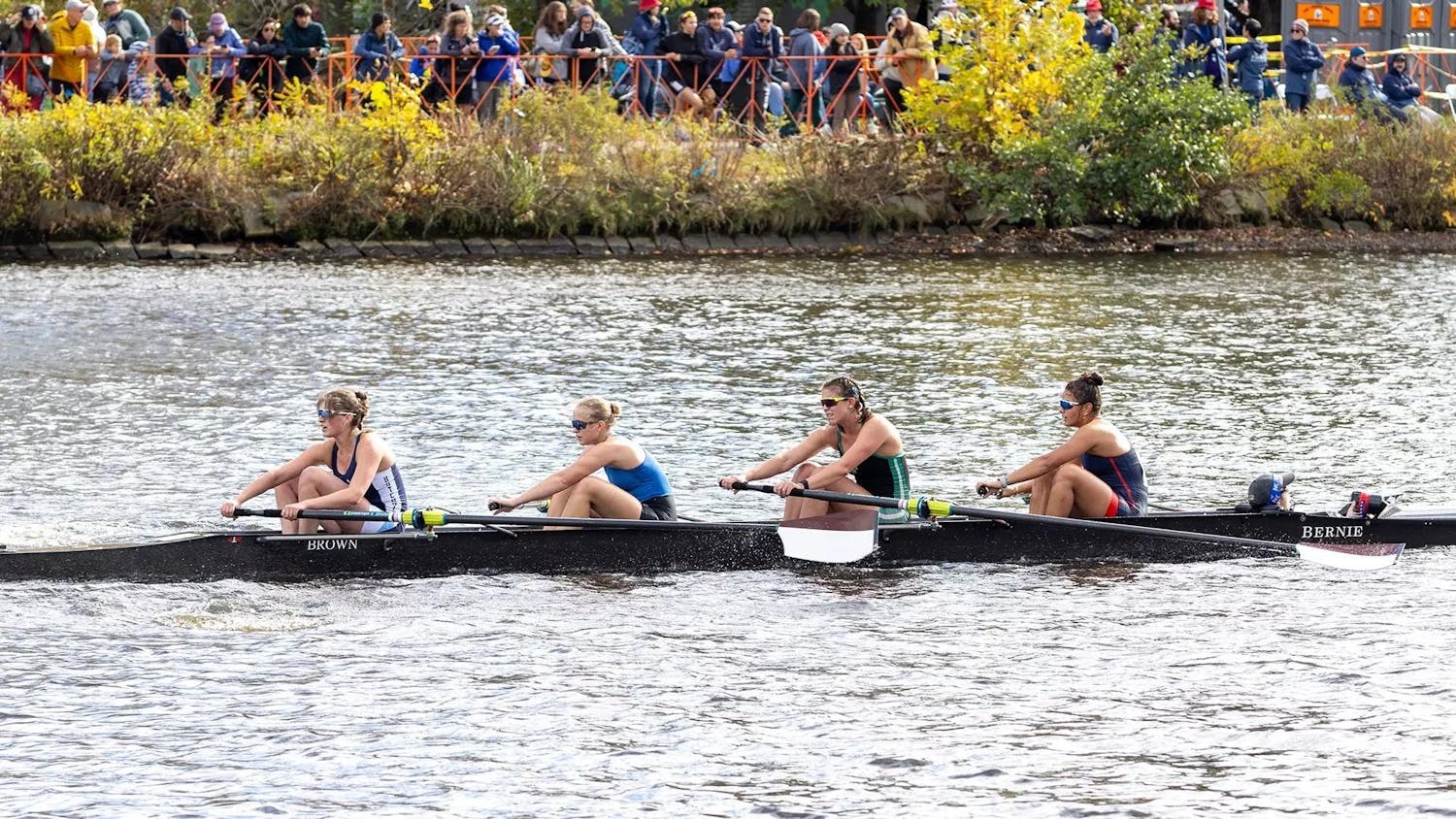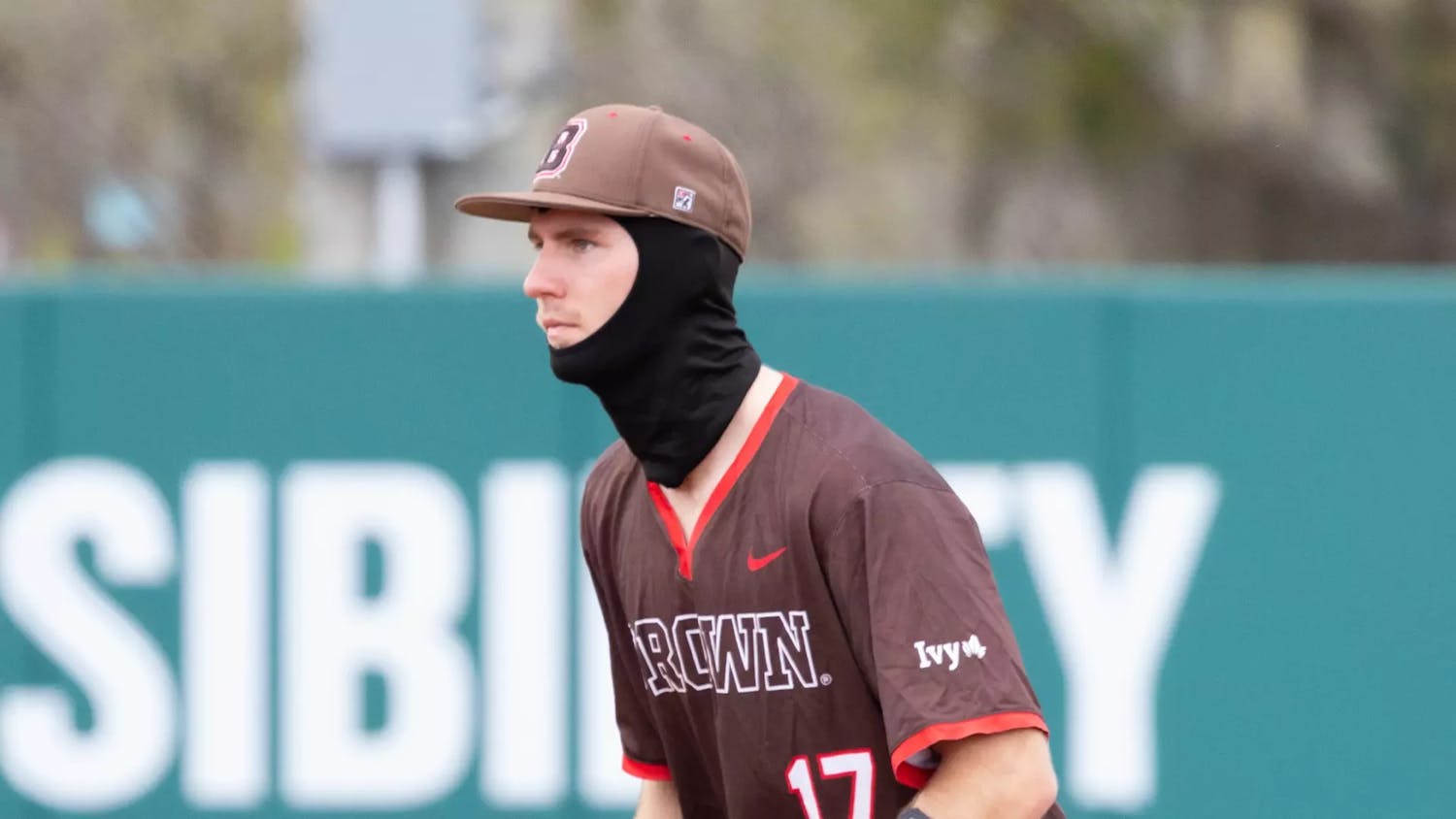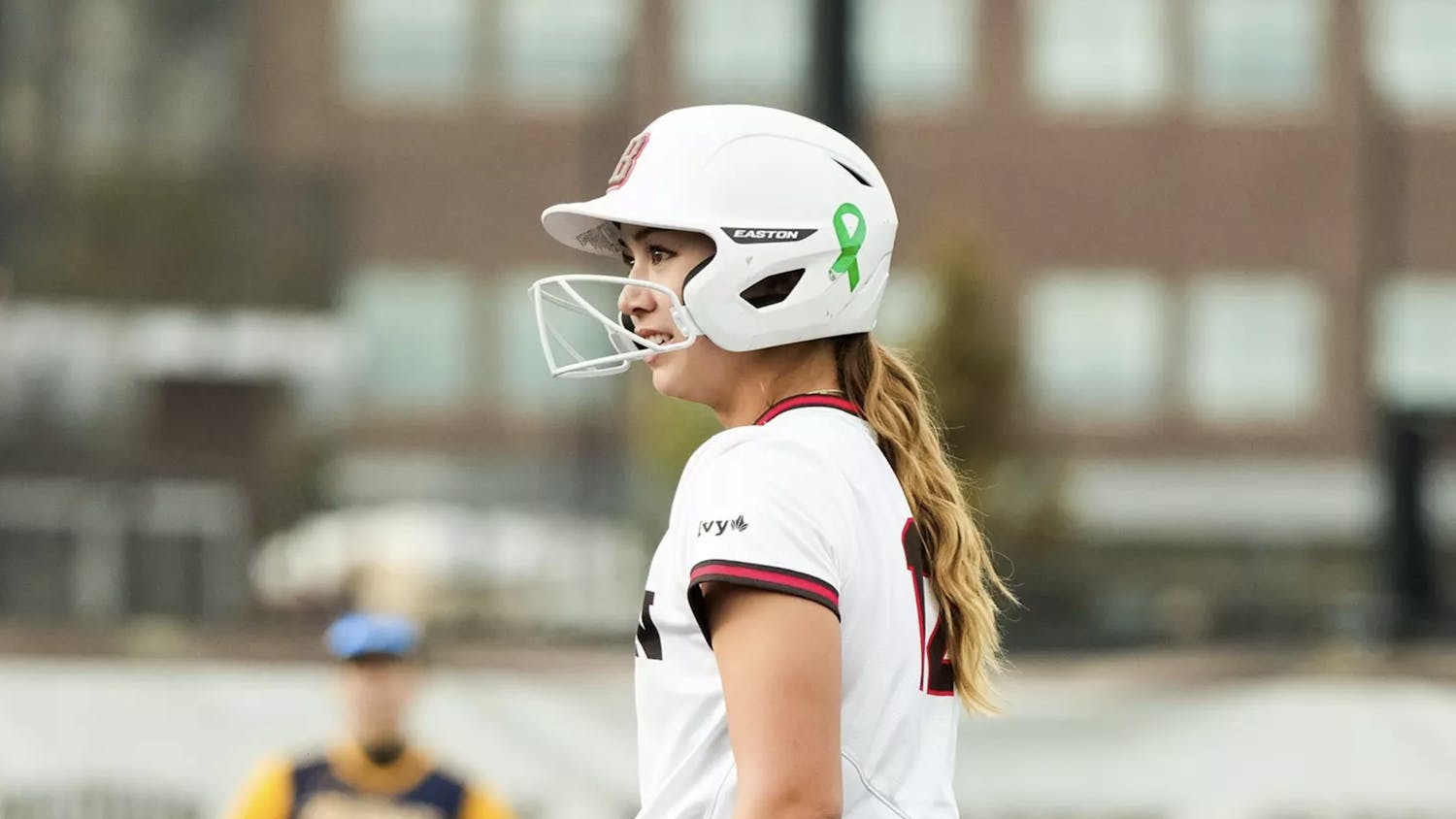The coaches are unpaid, the funds raised by the team. Many of the athletes have never played the sport before. Is this Little League, you ask? No, it's not. It's the No. 1-ranked women's rugby program in the nation.
The Brown women's rugby team is arguably the most successful team on campus — and perhaps the most successful of its kind in the country this year — though it receives no school funding, has no ability to recruit and lacks a significant following among Brown students.
As the team heads to Orlando for the opening round of Nationals this week, a lack of ESPN coverage and Vitamin Water sponsorships won't faze the Bears. They're determined to come home with the Division I national title, regardless of who takes notice.
This determination is only one part of what makes the women's rugby program — almost 35 years in the making — so successful. Head Coach and the Swearer Center's Director of Faculty Engagement Kerri Heffernan said she believes that Brown's high standards for academic excellence in its students contribute largely to the triumphs of her team.
"Rugby is a smart sport," she wrote in an e-mail to the Herald. "You have to think and project — it's about engineering space and using that space effectively. We have been able to find the right combination of athlete and student."
Many of the players were drawn to rugby after ending other sports careers in high school. "A lot of the sport skills are transferrable to rugby — the handling skills of basketball, the field sense of soccer, lacrosse, field hockey, the strength and speed of track," Heffernan wrote.
"Plus, Brown students are smart; they tend to have high expectations and a good work ethic — nice combinations for winning teams," she wrote.
Captain Alicia Hartley '10 agreed that it's the girls' mentality that keeps the program afloat — and makes it so dominant.
"Brown has steadily become a force within Division I women's rugby, mostly due to the time and dedication every player is willing to put in," she said.
Hard work is a huge part of being a rugby player. The sport is practically unrivaled in its demand for physical fitness: with an 80-minute running clock, no time-outs and no re-entry once a player has been subbed off the field — not to mention full contact and minimal padding — speed, strength and endurance are all necessities.
The girls challenge each other to excel every day, partly as a result of, and partly contributing to, the deep bonds that have formed between members of the team.
"I think most of us would not be willing to put in the amount of time we do for this team if it wasn't for the friendships we have made. The relationships we make with each other at Brown are special to this team alone and arguably one of the reasons we mesh so well on the field," Hartley said.
It's this camaraderie among teammates, as well as the physicality of the game that drew many athletes to the sport in the first place.
"It is hard to convey all the things that are wonderful (about rugby). I think one element that confuses people is the idea of women playing a contact sport — but there is something wholly satisfying about collision/contact sports," Heffernan wrote. Access to these kinds of sports "is the next horizon for Title IX," she wrote.
Title IX is the law forbidding gender-based discrimination in federally funded programs, namely the NCAA. Right now, the NCAA does not recognize women's rugby as an official collegiate sport — hence the team's status at Brown as a club, not varsity, athletic program.
For the players and coaching staff, this means that neither the government nor the University provide funds for equipment or travel expenses. The Brown rugby Web site estimates these costs at about $80,000 dollars per year, while the NCAA Web site puts it between $90,000 and $100,000 — to be raised by the athletes alone.
If the girls are successful in the preliminary rounds of the national tournament this year, they will travel to Stanford University in early May for the championships. The trip will cost significantly more than the spare change lying around their dorm rooms.
The team primarily receives funding through donations, sales of team photo prints and the "Adopt-a-Rugger" program. According to the fundraising Web site, the program allows donors to adopt players for $600 each. The money helps to cover necessary equipment, tournament fees, travel expenses and meal costs over the course of a season.
With the team boasting two alums on the U.S. World Cup team, four players on the U.S. national team and three All-Americans, financial support for the team has risen in recent years. Still, there is frustration with the lack of University and NCAA recognition of the sport.
"The success of the rugby program raises questions about the efficacy of the current way in which sports are designated and classified at Brown," Heffernan said. "Rugby is considered a club sport. That is just not an accurate designation — it does not consider the reality and experience of rugby players,"
Being a women's rugby player is perhaps even more than just an experience — some would consider it a way of life.
"I am graduating in May, and I know a huge part of me will always feel connected to this team. I have arguably put more time into this team than any other thing I have done at Brown and that is not something that just stops when you walk through the Van Wickle Gates," Hartley said.
This year is Hartley's last chance to win a national title, as she will be heading to graduate school in the fall instead of continuing her rugby career, despite prior participation on the U-20 national team.
"Every year we set our sights higher and higher. But, nothing can happen unless we win that first game, and that is definitely the mindset we are taking going into Nationals this year — one game at a time," she said.
The girls embark on the path to a national title this weekend, and even though their 12-2 winning record receives little recognition here on campus, there's a UNC team waiting fearfully to take on some of the best female athletes Brown has to offer.
ADVERTISEMENT




